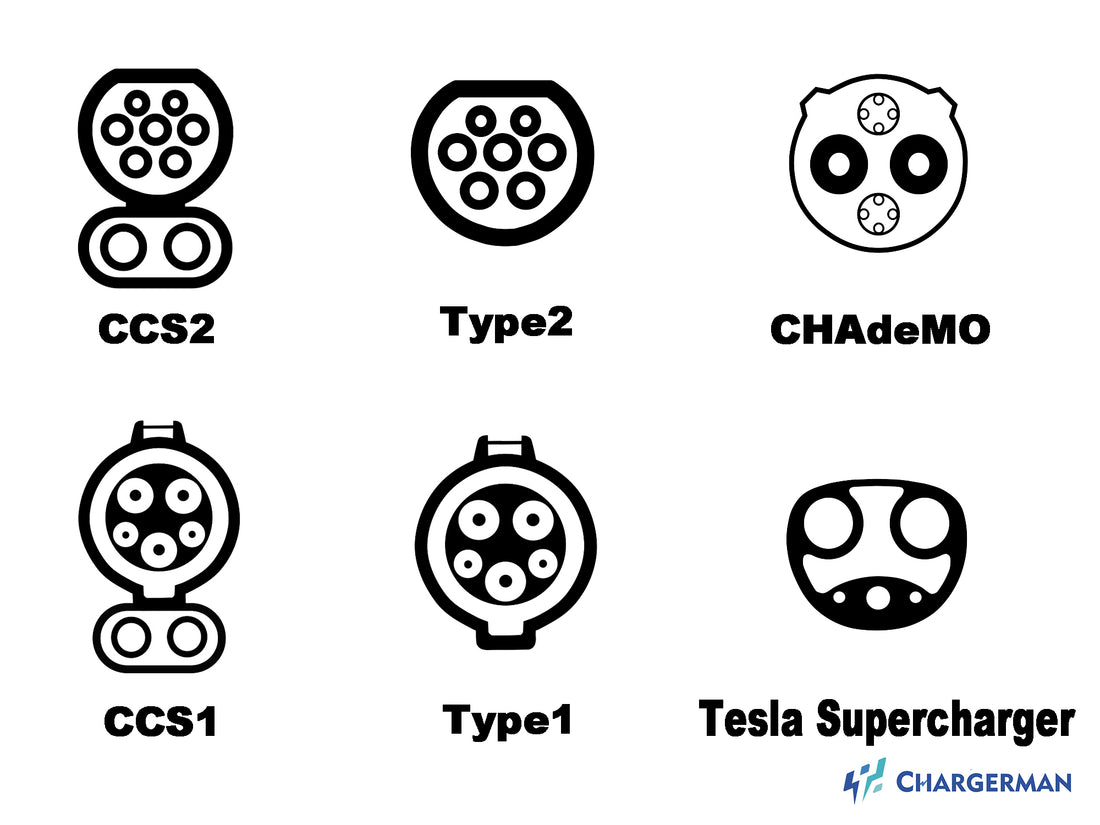
Major EV Firms to Adopt Tesla's NACS Standard
Kyle BrianShare
Shifting Tides in EV Charging: NACS vs. CCS-1 and the Path Ahead
If you've been following Chargerman, you've likely read our previous blog titled "What is NACS Adapter?" where we explained in detail what a NACS Adapter and NACS Charger are. We've been examining the intense competition between the CHAdeMO and CCS charging standards in North America over recent years, and how CCS has come out on top. A question that's been on our minds is why the U.S. maintains two distinct charging standards - Tesla and CCS. To the average driver, this bifurcation seems as pointless as needing two different nozzle shapes at a gas station - one for a specific brand and another for all others. This is nothing short of a nuisance for new energy vehicle owners!
Renowned for their compact size, lightweight, durability, and sleek design, Tesla's unique plugs seem superior to the relatively bulky, heavy, and fragile CCS-1 plugs. The logical move appears to be shifting towards Tesla plugs. However, such a change is hindered by historical precedents and the notorious "not invented here" syndrome prevalent in business circles.
It's important to remember that Tesla was once a newcomer in this field, proposing its proprietary charging standard to other automakers (albeit with certain conditions). Back then, most industry veterans saw Tesla as a passing phenomenon and questioned its sustainability. The audacity of these newcomers suggesting an industry standard! However, the tables have turned, and Tesla now sits on the throne of electric vehicle production and sales.
So, what ignited this complex chain of events? Likely, it was the Inflation Reduction Act, along with other green transportation policies advocated by the Biden administration. With massive budgets now allocated for building EV chargers across the U.S., our previous discussions on NACS vs. CCS-1 have gained even greater significance.
Standardization is undeniably the backbone of successful business. Imagine the havoc if a construction company decided to use 3X5-inch studs instead of the standard 2X4-inch ones. Such a change would necessitate modifications to building codes, changes in supply inventories, and even adjustments to architectural CAD/CAM tools, ultimately escalating costs and lowering productivity.
In such scenarios, the Society of Automotive Engineers (SAE) shoulders the responsibility of setting standards for the automotive industry. They've previously supported the CCS-1 standard, but on July 27, they announced their intention to establish a standard for NACS systems.
Embracing NACS: Electrify America's Future-focused Strategy

June 29, 2023, Electrify America made a pivotal announcement, and as a Chargerman analyst, I believe it could reshape the EV charging landscape. They've declared that they will be incorporating the North American Charging Standard (NACS) connector into their fast charging networks across both America and Canada.
Their commitment to broadening charging solutions for EV drivers is apparent in this decision. Importantly, they aren't abandoning the Combined Charging System (CCS-1). They plan to keep providing this connector throughout their network while simultaneously opening up to support automakers introducing NACS charging ports.
Looking ahead, I predict that this move will have a significant impact. By 2025, Electrify America plans to offer a NACS connector option at all their existing and future charging stations. As I see it, this move could mark the beginning of a new era in which the NACS Charger standard takes center stage in the world of EV charging. This is the convenience that EV owners have been seeking and it's great to see Electrify America leading the charge.
ChargePoint: Advancing EV Charging with NACS Integration

ChargePoint, a company I've followed for over 15 years, is dedicated to advancing electric vehicle adoption. They offer charging solutions compatible with multiple connectors, including CCS1, CHAdeMO, and J1772 in North America, as well as Type 2 and CCS2 in Europe. In their product lineup, which includes Express 250 (DC), Express Plus (DC), CPF50 (AC), CP6000 (AC), and the award-winning Home Flex (AC), they offer modular connectors based on customer preference. What's exciting is that they're soon introducing a NACS connector option and providing cost-effective field upgrades for existing chargers, ensuring their customers' investments are protected.
Charging networks with NACS Charger/NACS Connector
Besides the automakers striking deals with Tesla, numerous public charging networks are also signing agreements to equip their locations with NACS connectors.
The prospect of globally adopting a standardized charging post is intriguing indeed! This could propel global carbon neutrality efforts into an entirely new phase. It's a significant stride towards environmental transformation and planetary protection.